 Democracy was in retreat, and autocrats were on the march, before the coronavirus appeared, notes analyst To contain it, leaders of all political styles have assumed previously unthinkable powers to shut down the economy, steer production, close borders, and place businesses on life support, he writes for the Times.
Democracy was in retreat, and autocrats were on the march, before the coronavirus appeared, notes analyst To contain it, leaders of all political styles have assumed previously unthinkable powers to shut down the economy, steer production, close borders, and place businesses on life support, he writes for the Times.
Even the most liberal societies have gladly ceded these powers, in the spirit of wartime mobilization. But precedents are being set, red lines have been erased. The big risk is that leaders with autocratic tendencies will come out of the pandemic with greater leverage to control and close off societies, including democratic societies.
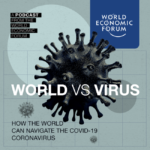 The second and third-order effects of coronavirus, to say nothing of the pandemic’s impact on resurgent great power competition, are likely to be felt long after the curve has flattened and a modus vivendi has been reached with the virus in the West, according to a new analysis.
The second and third-order effects of coronavirus, to say nothing of the pandemic’s impact on resurgent great power competition, are likely to be felt long after the curve has flattened and a modus vivendi has been reached with the virus in the West, according to a new analysis.
The positive acts of compassion, creativity and solidarity in the face of the coronavirus pandemic are heartening. There is a pervasive sense in the Global North that even if we cannot return entirely to the status quo ante, we will bounce back with a new sense of perspective and purpose, as well as renewed insight into what really matters, argues analyst Alistair Harris OBE. But as the latest report from the International Rescue Committee (IRC) confirms, the picture looks somewhat different in the Global South, in what are often termed ‘fragile and conflict-affected states’.
Undoubtedly, the coronavirus pandemic will negatively impact national and international security in profound ways that go way beyond public health, he writes for the Royal United Services Institute (RUSI), and that is saying nothing of the risks to democracy, freedom of speech, access to information, civil society and the social contract occasioned by the securitized response of many states.
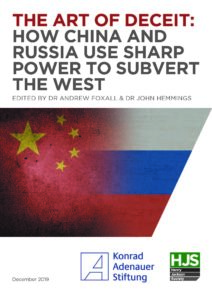 According to a recent report from the Congressional Research Service, the key features of Renewed Great Power Competition include but are not necessarily limited to:
According to a recent report from the Congressional Research Service, the key features of Renewed Great Power Competition include but are not necessarily limited to:
- the use by Russia and China of new forms of aggressive or assertive military, paramilitary, information, and cyber operations—sometimes called hybrid warfare, gray-zone operations, ambiguous warfare, among other terms, in the case of Russia’s actions, and salami-slicing tactics or gray-zone warfare, among other terms, in the case of China’s actions;
- renewed ideological competition, this time against 21st-century forms of authoritarianism and illiberal democracy in Russia, China, and other countries;
- the promotion by China and Russia through their state-controlled media of nationalistic historical narratives emphasizing assertions of prior humiliation or victimization by Western powers, and the use of those narratives to support revanchist or irredentist foreign policy aims…..
 Liberal internationalism has hallmarked the US strategic vision since the end of the Cold War. After a new, unipolar order took shape in the early 1990s, American strategic and operational planners were asked to support a world, according to G. John Ikenberry, defined by “open markets, international institutions, cooperative security, democratic community, progressive change, collective problem solving, and the rule of law,” notes Jack MacLennan, an assistant professor of political science and graduate program director for national security studies at Park University.
Liberal internationalism has hallmarked the US strategic vision since the end of the Cold War. After a new, unipolar order took shape in the early 1990s, American strategic and operational planners were asked to support a world, according to G. John Ikenberry, defined by “open markets, international institutions, cooperative security, democratic community, progressive change, collective problem solving, and the rule of law,” notes Jack MacLennan, an assistant professor of political science and graduate program director for national security studies at Park University.
Frankly, strategic vision has been lacking in foreign and defense policy circles for the last twenty years. Instead, the planks of the liberal order and tactical engagements that have defined America’s post-9/11 military actions were seen in terms of efficiency rather than long-term impact, he writes for the Modern War Institute: @WarInstitute
To some extent this is due to the nature of the US foreign policy establishment and its ideological acceptance of liberal internationalism. The result was a focus on troop numbers, tactics, and political capital, not genuine strategic thinking. While evoking great-power competition may at first open up space for such a discussion, there is a real danger that it simply becomes another term that substitutes for genuine strategic planning because it implies a particular way of thinking about the world. Great-power competition is not a neutral term.
Here is the key problem, MacLennan contends: focusing on the “competition” between great powers substitutes a desire to be best overall, or best in all cases, in place of a clear and practicable strategic vision couched carefully in US interests. Rather than focusing on what is in the United States’ interest and how best to advance those goals in key issue areas, it becomes about simply besting the competitor in any given instance. RTWT
Strategic complacency
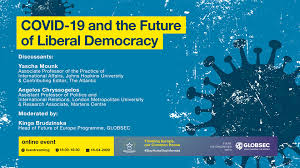 The National Security Strategy issued in December 2017 stated that the United States was re-entering an era of great power competition, in which China and Russia “want to shape a world antithetical to U.S. values and interests.”
The National Security Strategy issued in December 2017 stated that the United States was re-entering an era of great power competition, in which China and Russia “want to shape a world antithetical to U.S. values and interests.”
“Since the 1990s, the United States displayed a great degree of strategic complacency. We
assumed that our military superiority was guaranteed and that a democratic peace was
inevitable,” the NSS stated. “We believed that liberal-democratic enlargement and inclusion would fundamentally alter the nature of international relations and that competition would give
way to peaceful cooperation.”
The view of a drawn-out ideological conflict was laid out in stark terms by Kiron Skinner, the head of policy planning at the State Department, in a talk in Washington last April, the Times reported.
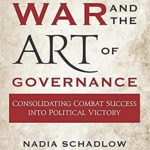 “This is a fight with a really different civilization and a different ideology, and the United States hasn’t had that before,” she said. “The Soviet Union and that competition, in a way, it was a fight within the Western family.”
“This is a fight with a really different civilization and a different ideology, and the United States hasn’t had that before,” she said. “The Soviet Union and that competition, in a way, it was a fight within the Western family.”
The postwar order eventually established “a lot of value sharing democracies that we can work with,” said RAND analyst Michael Mazarr. But to think in terms of great power competition misses the real structure of international politics …it’s very undertheorized in terms of what it actually means, he told a recent CSIS forum.
Every one of these cases is unique and contingent. So we should think in terms of a rising and increasingly intense competition across multiple areas with China, with a revisionist Russia in the background, he added.
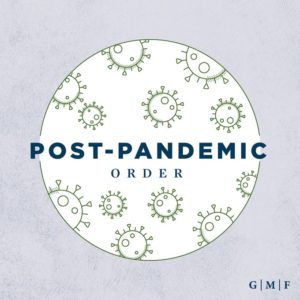 The COVID-19 crisis actually reaffirms, not surprisingly, some of the key themes that were identified in the National Security Strategy, said Hudson analyst Nadia Schadlow, author of War and the Art of Governance (above) and a board member of the National Endowment for Democracy (NED):
The COVID-19 crisis actually reaffirms, not surprisingly, some of the key themes that were identified in the National Security Strategy, said Hudson analyst Nadia Schadlow, author of War and the Art of Governance (above) and a board member of the National Endowment for Democracy (NED):
- First, the great power competition angle, which you just mentioned. China is a serious competitor trying to compete along political, military, economic means, all accelerated by technology. The CCP’s lack of transparency, lack of reciprocity in our trade arrangements, all of that, especially the lack of transparency, has played a key role in the current COVID crisis…
- Second, the NSS identified the importance of states and of borders, and as states as actors that can achieve outcomes much more effectively in many ways than international organizations. …States make up international organizations. States have power, states have money, states make the military contributions, states make the monetary contributions to these organizations, so states do matter….
The 2018 US National Defense Strategy (NDS), describes the purpose of the post-Second World War order as ‘safeguard[ing] their [democratic states] people from coercion and aggression’ and its erosion as the source of waning Western competitive advantage, note RUSI analysts Peter Roberts and Sidharth Kaushal.
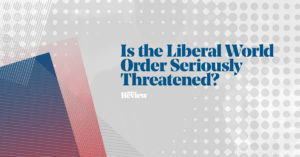 The problem with this definition of advantage is that it conflates the fruits of competitive
The problem with this definition of advantage is that it conflates the fruits of competitive
success – the state of affairs that best enables national flourishing – with competitive success itself, they write in Competitive Advantage and Rules in Persistent Competitions, a paper for the Royal United Services Institute for Defence and Security Studies:
The ability to dictate political mechanisms, such as the rules which govern the global
commons, is an outcome that is secured by obtaining competitive advantage. To define
advantage in terms of success veers towards the tautological. States that are competitive get
what they want and the definition of competitive success is getting what one wants. More
importantly, this definition allows policymakers to generate strategies that amount to little more than a wishlist, with few specific guidelines regarding the preconditions that allow a state (or a group of states) to set the rules of the road.
“In effect, this approach moves from capabilities to desired policy outcomes without specifying the strategic end state which is the transmission belt between capabilities and policy,” they suggest.
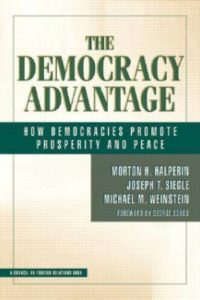 The economic vitality of democracies can give them advantages in long-term contests like the Cold War, but the economic decentralisation that confers this vitality also makes extracting resources for war difficult, Roberts and Kaushal observe:
The economic vitality of democracies can give them advantages in long-term contests like the Cold War, but the economic decentralisation that confers this vitality also makes extracting resources for war difficult, Roberts and Kaushal observe:
This means that, in the early stages of a war, democracies are often disadvantaged and are at risk of losing unless they can ensure that the conflict is a long, attritional one in which their resources can be brought to bear. In effect, the question of who has competitive advantage is dependent on the timeframe in which both parties expect to reach negotiations. RTWT
What does great power competition (GPC) mean and why might it be happening? analysts Cornell Overfield and Joshua Tallis asks in Great Power Relations: What Makes Powers Great and Why Do They Compete?
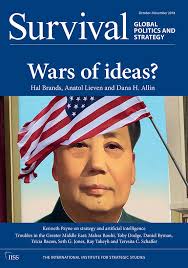 Johns Hopkins University professor Hal Brands recently noted (right) that inherent tensions between democratic and authoritarian ideologies, particularly their difficulty in compromising with one another, play an important and underappreciated role in fueling competition between the US and Russia and China, they suggest.
Johns Hopkins University professor Hal Brands recently noted (right) that inherent tensions between democratic and authoritarian ideologies, particularly their difficulty in compromising with one another, play an important and underappreciated role in fueling competition between the US and Russia and China, they suggest.
But an explicitly competitive worldview produces a number of pitfalls, Overfield and Tallis conclude:
1. Framing relations with Russia and China purely in terms of competition risks stifling
opportunities for cooperation, which most theories encourage in at least some way.
2. GPC’s focus on Russia and China belies the fact that other states may be or become
great powers, serving as potential sources of cooperation or balancing for the US.
3. By associating “competition” with adversaries and “cooperation” with allies, such
terminology risks obscuring the fact that just as adversaries can cooperate, so too can
allies compete.
How Will the Coronavirus Pandemic Impact Great Power Competition? was the focus of a recent livestreamed event featuring Hudson analysts Eric Brown, Michael Doran, Blaise Misztal and Nadia Schadlow, a board member of the National Endowment for Democracy (NED).








